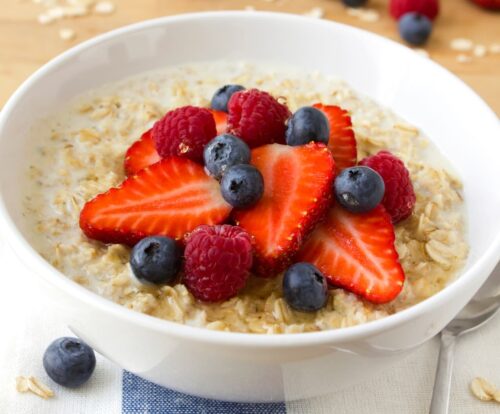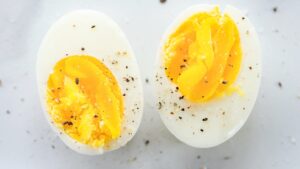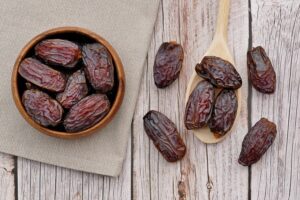Even while the simple oat lacks superfood classification (or the corresponding price tag), it is nutrient-dense. Half a cup of oats provides roughly 15% of your daily needs for fiber, which is great for your digestive system. Even more unique forms of fiber, such as beta-glucan, found in oats support a healthy heart by lowering cholesterol levels. In comparison to many other grains, oats provide greater protein. Also, because they are a form of whole grain, consuming enough of them is associated with a lower risk of colon cancer, diabetes, and heart disease.
They are frequently bought in rolled or quick/instant form. Both provide the benefits of wholegrain oats, but the difference is that fast oats are chopped finely before rolling. Because of this, quick oats cook more quickly and digest more quickly. As a result, eating quick oats won’t make you feel as full or satisfied as eating conventional rolled oats will.
Porridge sachets aren’t always the greatest option because they typically contain quick-cook oats and flavorings with added sugars. Choose a simple sachet and add your own flavor with fresh fruit if you’re looking for convenience. Alternatively, check for no-added-sugar sachets that are fortified with nutritious nuts and seeds. These days, you may buy porridge oats that have been supplemented with quinoa, rye, barley, nuts, and seeds. These choices are wise investments because they increase the diversity of nutrients in your breakfast dish. Look for the following while choosing the best oats to add to your shopping cart:
a lot of fiber. More is always better. Use the “per serve” column when purchasing a sachet to compare brands. When purchasing in bulk bag, look at the per 100g column to find the highest-fibre content product.
Minimal sugar. If you love flavoured sachets, look for a brand with less than 10g sugar per 100g. If there’s dried fruit in the product, a little more than 10g per 100g is okay.
Sensible portion size. One benefit of buying porridge sachets is they’re pre-portioned.





